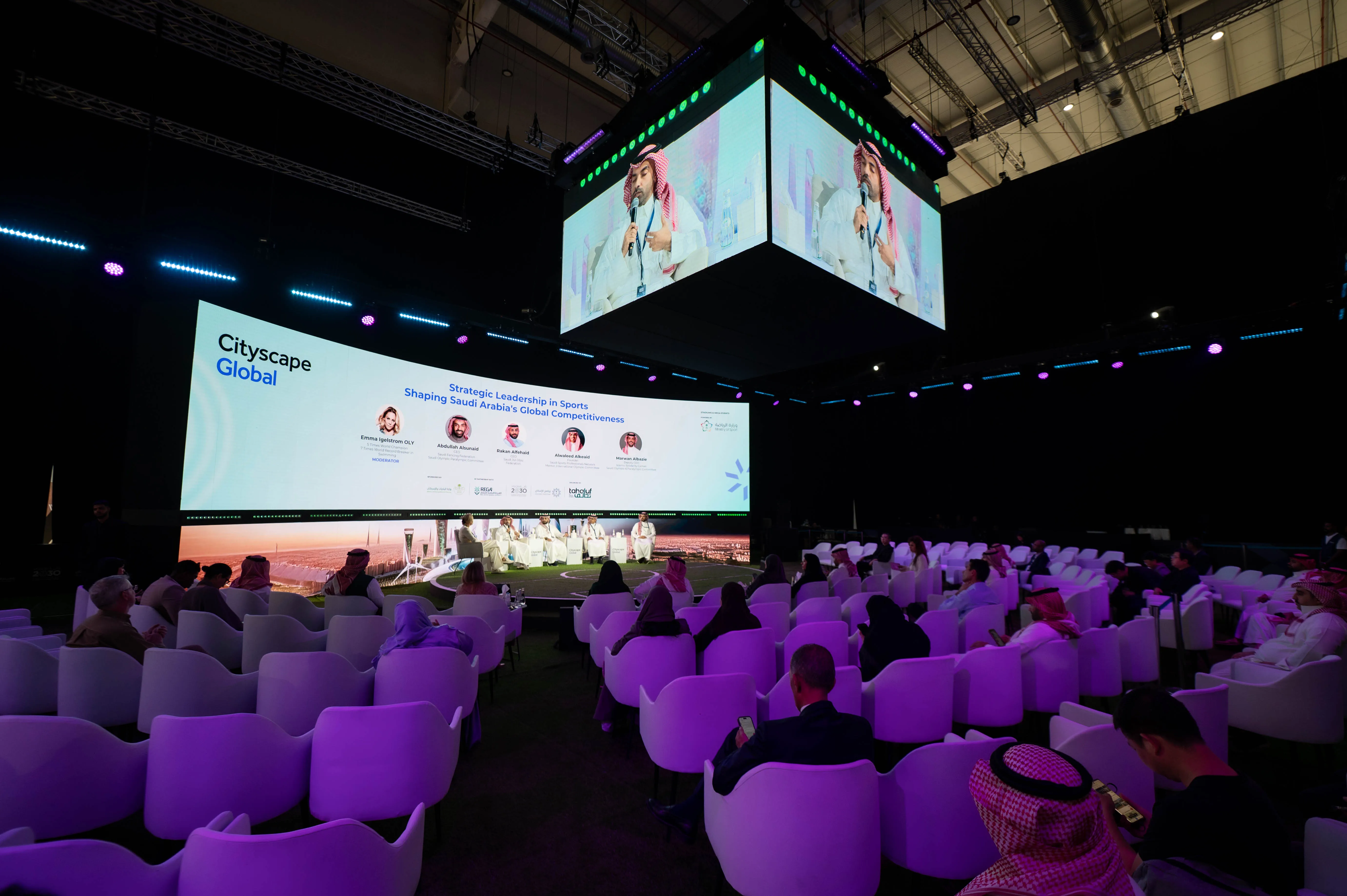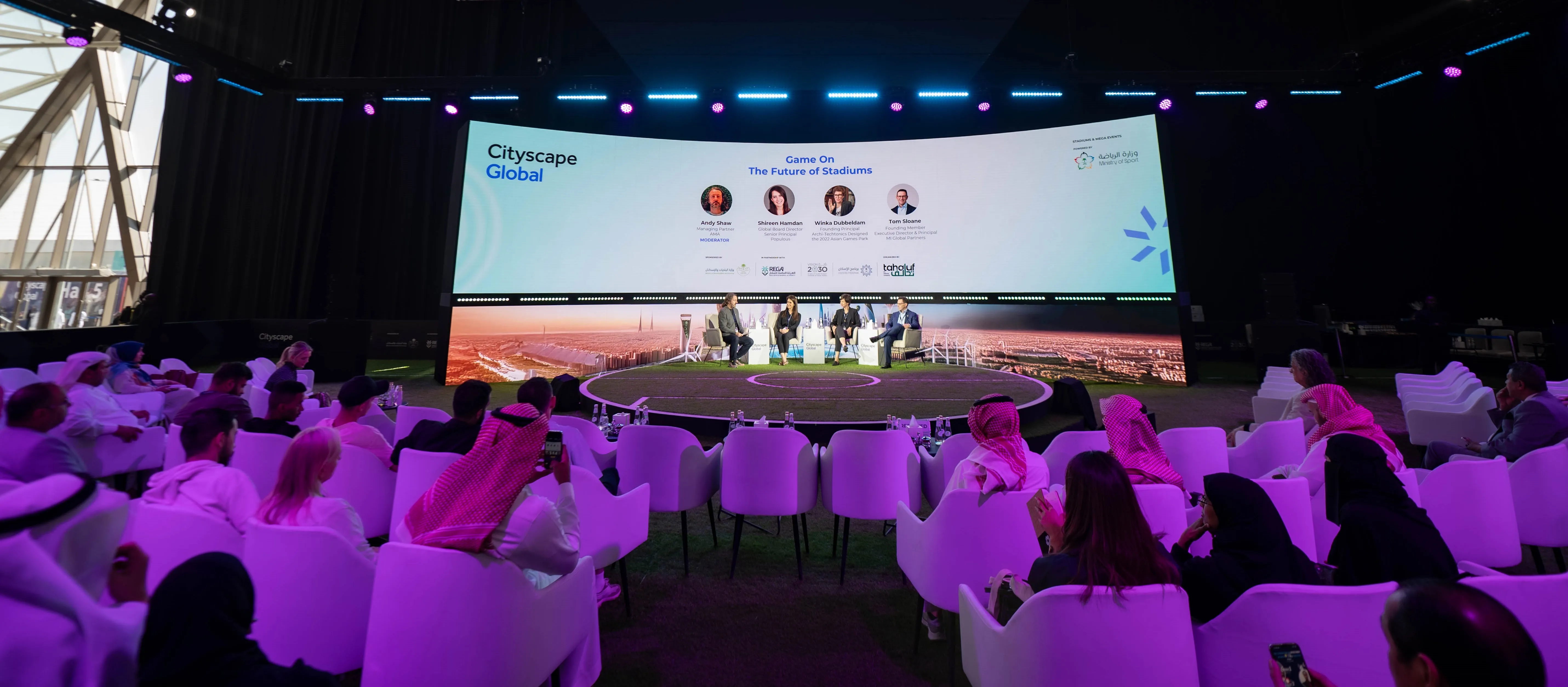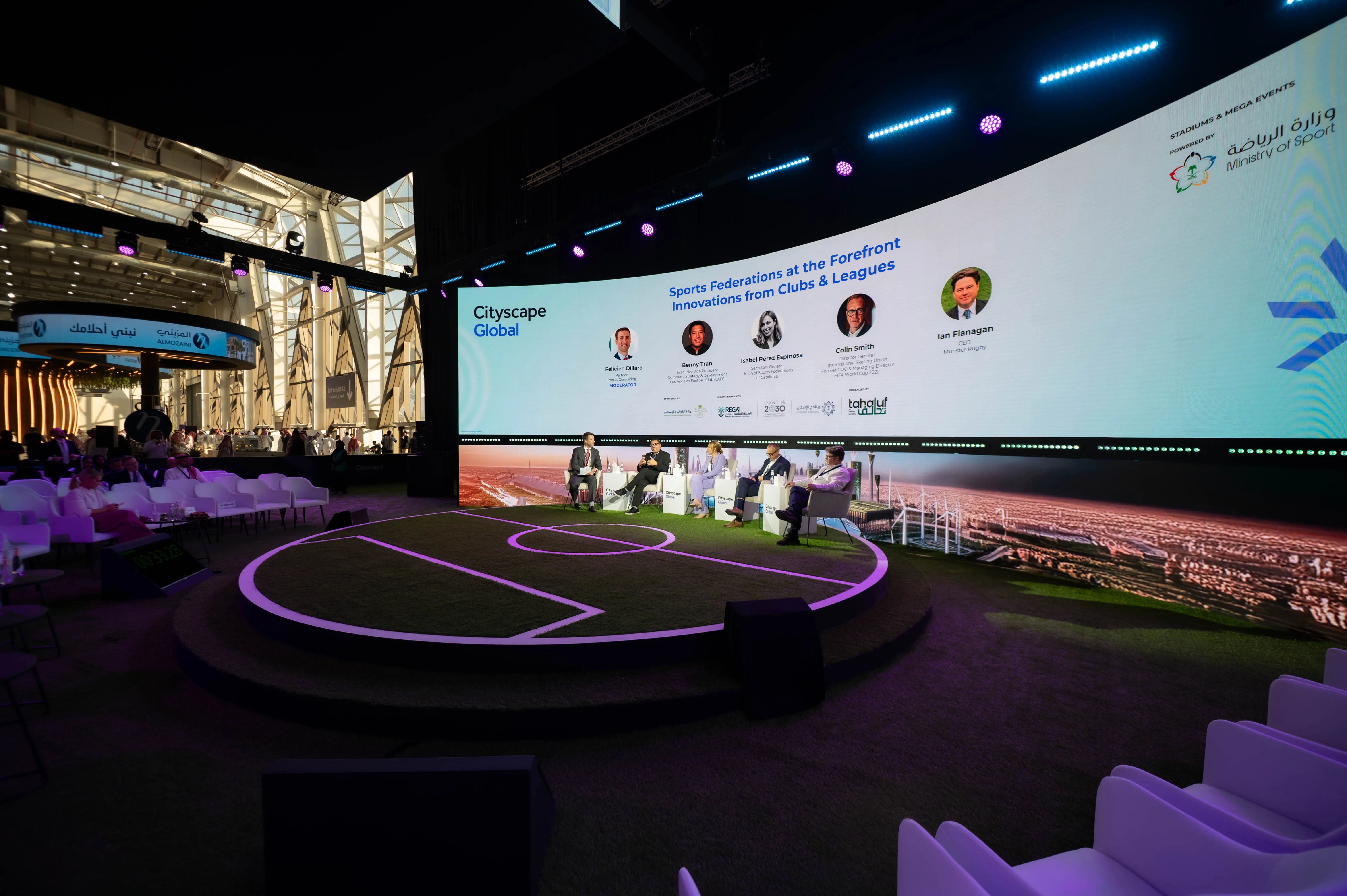As Saudi Arabia accelerates its Vision 2030 goals, the sports sector stands as a powerful vehicle for social, economic and cultural transformation. At a panel discussion held at the Stadiums and Mega Events Stage - now rebranded as ESTAAD - at Cityscape Global 2024, key figures in Saudi sport leadership shared insights into the strategic direction of sport development across the Kingdom, from infrastructure and grassroots growth to mentorship and mega events.
Beyond Games: How Saudi Arabia Is Building Sport into Everyday Life

Infrastructure: The Foundational Challenge
One of the core issues facing Saudi Arabia’s sports expansion is the lack of sufficient infrastructure. Alwaleed Alkeaid, Former Mentor at the International Olympic Committee, underscored that while the government has historically built stadiums and sports complexes, the scale and diversity of modern sports require broader participation, especially from the private sector.
With over 97 sports federations operating in the Kingdom, there is a critical need to scale up accessible venues, from large stadiums to community gyms. The private sector, Alwaleed emphasised, must emerge as a key enabler, incentivised by a revenue-sharing model and supported by favourable regulations.
Rakan Alfehaid, CEO, Saudi Jiu-Jitsu Federation, proposed a practical step forward: optimising the use of existing facilities. Collaboration with the Ministry of Sports, private institutions and the Ministry of Education could unlock access to underutilised venues, especially within schools and universities.
Sustainable Venues and Legacy Planning
Marwan Albazie, Deputy CEO, Islamic Solidarity Games, emphasised the importance of legacy in event planning. “We must think beyond the event,” he said, noting that new facilities should be multi-purpose and embedded into the local communities post-event. This approach ensures that community members, especially the youth, can access venues for regular sports and recreation.
He also advocated for integrating sports venues within academic institutions, enabling a combination of education, research and sport development - a model increasingly popular globally.
Grassroots Growth: The Real Game-Changer
While mega events create headlines, it’s the grassroots that create champions. Abdullah Alsunaid, CEO, Saudi Fencing Federation, shared the remarkable journey of Saudi fencing, which grew from just 9 clubs and no female athletes 6 years ago to 62 clubs and over 800 female fencers today. This was accomplished through a long-term strategy in partnership with the Ministry of Sports and the Olympic Committee, with funding directly tied to measurable KPIs via the Club Support Programme.
Rakan Alfehaid echoed these achievements within the Jiu-Jitsu Federation, which now supports youth athletes across the Kingdom. Competitions have become highly competitive, with young athletes showing Olympic-level dedication, some even shedding tears after losing medals. His team’s efforts recently led to 10 medals at the World Championships in Greece, 6 of which were won by under-18 athletes.
Still, recruiting and retaining youth athletes remains a challenge. Balancing academic responsibilities, social life and intensive training requires strong institutional support.
The Crucial Role of Mentorship
Mentorship, Alwaleed Alkeaid explained, is essential not just for developing athletic performance but for shaping well-rounded individuals. Many athletes struggle after retirement due to lack of planning or guidance. Mentorship offers a support system that helps athletes navigate their careers and prepare for life after sport.
Mega Events: Catalysts for Culture and Economy
Events like the Islamic Solidarity Games and the upcoming World Cup are more than sporting spectacles. As Marwan Albazie explained, they inspire participation, stimulate local economies and promote international knowledge exchange. They also serve as a proving ground for young talent and elevate Saudi Arabia’s profile as a global sports destination.
The Saudi Jiu-Jitsu Federation is currently preparing to host major regional championships, banking on the sport’s media appeal and its ability to recruit athletes from other disciplines like judo, taekwondo and karate. As one of the top five nations in Asian Jiu-Jitsu, the Kingdom is well-positioned to lead.
Abdullah Alsunaid also emphasised the often-overlooked benefit of hosting events: training sports staff in logistics, safety and technical specialisations. Hosting the Fencing World Championship brought 3,000 athletes and staff to the Kingdom, boosting experience across event management, sports science and medical services.
Technology and Talent Identification
Fencing has long embraced technology, with electronic scoring and analytics used for decades. This technological advantage is now being leveraged to scout and train new athletes. Across federations, identifying and nurturing talent has become a national priority, requiring sophisticated tools and close coordination with education and health sectors.
Sports as a Lifestyle
Events, federations and institutions must work together to create a culture where sport is part of daily life, improving both physical well-being and community cohesion. Encouraging children to engage in sport from a young age is critical, especially in an era where digital distractions like gaming and virtual reality are prevalent. The vision aligns with Saudi Arabia’s Vision 2030, which aims to foster a vibrant society by promoting healthy, active lifestyles supported by community gyms and accessible facilities in every neighbourhood.
Empowering Female Participation
Another key focus is the rapid rise of women’s sports in Saudi Arabia. While international events such as the Paris Olympics have achieved gender parity among athletes, Saudi leaders are looking beyond the field - towards female coaches, leaders, and sports professionals. Visibility is key: role models like Ons Jabeur and Caitlin Clark have inspired growing interest among young women. At the same time, creating the right environment - facilities, staff and long-term opportunities, is vital for sustaining female engagement and ensuring a more inclusive and dynamic sporting future for Saudi Arabia.
Don’t Miss ESTAAD at Cityscape Global 2025
As Saudi Arabia builds this new sporting future, there’s no better place to witness its vision in action than at ESTAAD, co-located with Cityscape Global 2025. ESTAAD showcases the power of sport to transform communities, cities and economies.
Whether you're an investor, urban planner, policymaker, or sports enthusiast, ESTAAD offers a unique opportunity to see how sports infrastructure, events and strategies are shaping the future of Saudi Arabia.
From design to delivery, ESTAAD powers the future of sport, bringing together every element needed to build, activate and elevate Saudi Arabia’s next era of sport and entertainment. Join us from 17–20 November at ESTAAD, Cityscape Global 2025.

